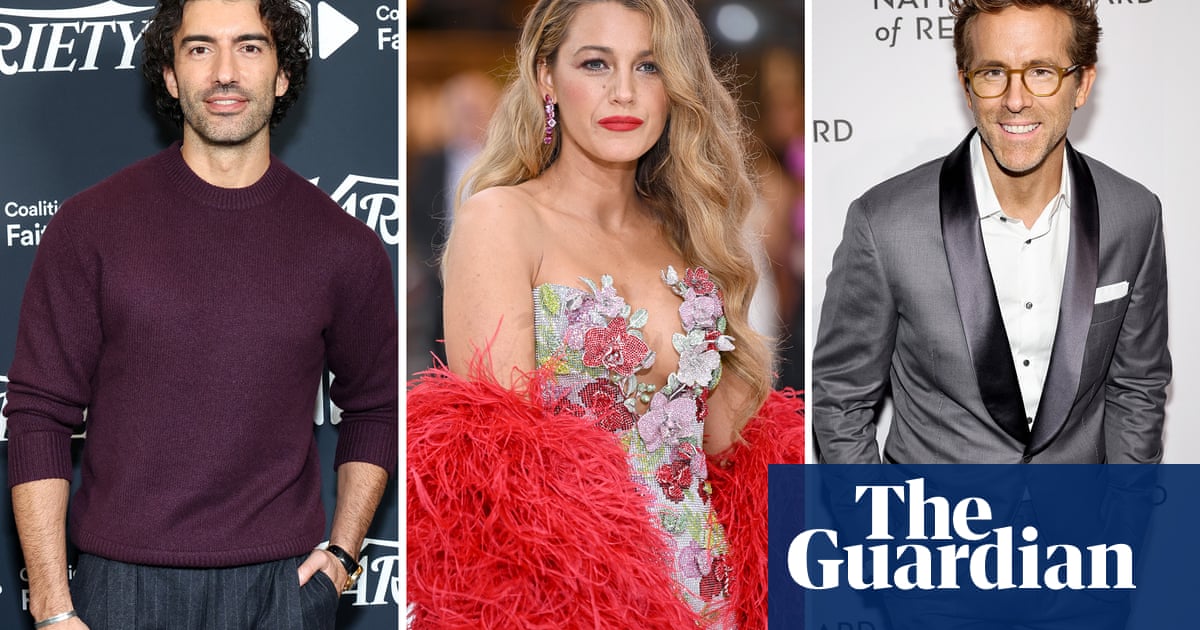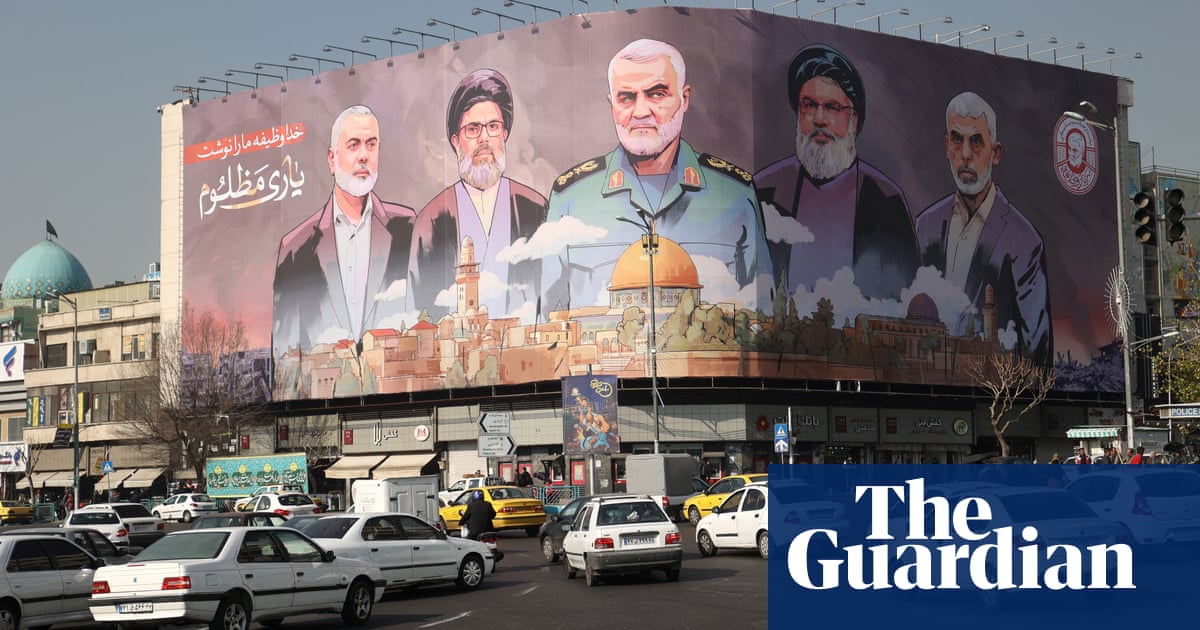Hi everyone. The first thing you’ll notice about this newsletter is that I’m not Nesrine. But don’t worry, we don’t need her to have a good time. I’m Jason, the editor of The Long Wave, and I’ll be writing the newsletter this week and occasionally in the future.
Last month I attended a pop-up in London for the pioneering British-Ghanaian DJ and producer Juls. If you’re a fan of African music, like me, you’ll know that when a track opens with “Juls, baby” you’re about to hear straight fire (for the uninitiated, start with Wizkid’s True Love and Wande Coal’s So Mi So). So I was very excited to meet the man himself as he celebrated 10 years shaping modern Afrobeats, and the launch of his most recent album, which takes listeners on a journey through the sounds and traditions of the global Black diaspora. First, here’s the weekly roundup.
Weekly roundup

Racist texts after Trump’s win | Black people across the US have reported receiving racist messages telling them they have been selected to “pick cotton” and need to report to “the nearest plantation” in the aftermath of Trump’s election win. The president-elect’s campaign has denied any association with them.
Big oil payouts in Guyana | Hundreds of thousands of Guyanese citizens at home and abroad will receive a payout of GY$100,000, as the country attempts to redistribute its oil wealth, Natricia Duncan reports. Since Guyana began crude oil extraction in late 2019, its economy has enjoyed incredible growth.
Buz Stop Boys sweep Ghana’s streets | A group of young professionals and tradespeople are “driving a new wave of civic responsibility in Ghana” cleaning and sweeping away rubbish in Greater Accra, as well as clearing gutters and cutting overgrown grass. The collective hopes to inspire environmental consciousness and investment in proper methods of waste disposal.
A toast to Abidjan cocktail week | Ivory Coast’s drinks festival, founded by the doctor turned mixologist Alexandre Quest Bede and “Afrofoodie” blogger Yasmine Fofana, is encouraging Africans to embrace their roots. Eromo Egbejule reports that “due in part to colonial-era stigmatisation and bans, local gins and other alcoholic drinks have long been seen as unsafe [and] inferior”.
London Rastafarian HQ revived | A new exhibition will tell the story of the temple at St Agnes Place in London, which became a focal point for Rastafarian religion after a takeover in 1972. As Lanre Bakare reports, Echoes Within These Walls hopes to “dispel myths about the religion, which continues to be a big influence in popular culture”.
In depth: A cultural odyssey

When Juls conceptualised the album Peace & Love, he envisioned a cultural odyssey that drew on Black traditions, sounds and instruments around the world. Much of the album was made in Jamaica and Ghana, where he would create beats on his mother’s balcony in Esiama, or rent a beach house in Kokrobite so he could hear the ocean. But to finish it off sonically, Juls headed to Brazil in the summer of 2023, where he added further details to his tracks. “On the album we’ve got a song called Saint Tropez, which has elements of amapiano and highlife, but then there’s some triangle sounds that I got from Brazil. There’s a mix of different sounds I’m hearing as I’m going on these trips.”
These trips were also an opportunity for Juls to enrich himself culturally. In Jamaica, he visited Bob Marley’s Tuff Gong Studio in Kingston, where he made beats. “I was just connecting with a lot of people who are deep in reggae music history. We spoke a lot to the Marley family, and we spoke to Bob Marley’s engineer. It was a real music journey. I got to meet Augustus Pablo’s son – we went to his record store and bought some vinyls as well.”
In Salvador, home to Brazil’s largest Black community, he was reminded of Yoruba culture – “they still practise a lot of rituals over there”. He made similar observations in Jamaica: “When you go to the Accompong [Maroon] village, they practise a lot of the Ashanti rituals from Ghana. So there’s a lot of similarities between parts of the Caribbean, Latin America and Africa that I found interesting.”
Juls was also struck by the use of instruments in the places he visited and how similar percussive sounds were transformed in new contexts. A staple of Afro-Brazilian music is the agogô, a bell with origins in Yoruba and Edo traditions. “But we don’t call it that in Ghana, we call it Gan Gan,” Juls says. Where Ghanaians use the kpanlogo drum, Brazilians may use the atabaque.
For Juls, the Black diaspora’s use of drums gave him an opportunity to “play with all of these sounds” and provide a deeper layer of meaning to his music. On the opening track of his album, Leap of Faith, featuring the British artist Wretch 32, Nyabinghi drums are played, “these drums are used by Jamaicans and Ghanaians as a form of communication, celebrating their ancestors and showing praise. And they were also used to communicate in the village back in the day. In the beginning of the song there’s a guy from my father’s home town, Jamestown, who says: ‘Everybody gather around and listen’.”
‘I like to bring people together’

Juls is considered a maestro of Afrobeats, evidenced by the long list of artists who bring him on as a collaborator, but his curiosity stretches far beyond whatever limited perception people have of the genre, as he explores the interconnectedness of the diaspora. He loves mixing African and Brazilian music in his sets. He recounts performing in São Paulo, where the Brazilians were pleasantly surprised by his extensive knowledge of their genres.
That passionate embrace of similarities and differences is something he literally wears around his neck. He shows me his chain, which he tells me is “an Adinkra symbol called Funtunfunefu Denkyemfunefu, which means unity and diversity. And that’s just something that I live by – I just like to bring everybody together from different tribes.” But in African music, there has at times been backlash over incorporations of different genres into a broader Afrobeats sound – there have especially been concerns around Nigerian artists “appropriating” amapiano music, which is native to South Africa.
But for Juls, this melting pot of African genres can be embraced so long as what is produced is always in dialogue with its originators. “I’ve tapped into amapiano quite a few times but I always make sure I’m doing it with a South African artist or producer,” he says. “There’s a song on my album called Muntuwam, which has an element of amapiano, and on there I have Nkosazana’s Daughter. She listened to the song and loved it, which made me feel great because that’s coming from a South African who’s deep into that sound. It means you’re on the right path.”
Juls also sees this as something that charts the progression of Afrobeats from its birth in the early 2000s DJ sets – “data, internet, structure”. There’s an ability to authentically tap into genres around the world, from fújì to highlife and kwaito to soukous, because you’re able to readily access information about this music. Afrobeats is thus less a coherent genre and more a label used for convenience. “If you really want to tap into the proper sound, you have to travel to these countries specifically, and do even deeper research.”
after newsletter promotion
This curiosity is evidently booming for Black artists. He cites Asake’s collaboration with the Afro-Brazilian singer-songwriter Ludmilla – Whine (one of my most played tracks from Lungu Boy) and even Tyler, the Creator’s sampling of the Zamrock band Ngozi Family on NOID from his latest album, Chromakopia, as some of his favourite recent Black Atlantic link-ups.
It’s clear Juls is ready for his sound to enter a new chapter, bringing the Black diaspora with him. “The first 10 years have been about putting people in a good mood; the next 10 years, I’m trying to make people dance.”
What we’re into

-
I can’t tell you how many times I’ve played Tyla’s Push 2 Start music video – that song! That choreography! Her performance at the MTV EMAs on Sunday was electrifying. Jason
-
One of the advantages of living on the African continent is all the African content on streaming platforms. This week, the most watched movie on Netflix is the South African Umjolo – the Gone Girl. It is tagged as “Steamy. Quirky. Dramedy”. I’ve heard enough. Nesrine
-
I’m obsessed with Toyo Tastes, a British-Nigerian food blogger and cook who makes everything from plantain and efo riro croquettes to gizdodo vol-au-vents. Jason
-
I am a tragic cyclist, in that I love it but am not gifted at it. (And all the kit puts me off.) There may also be a cultural element – which is why I’m excited to dig into my copy of New Black Cyclones – Racism, Representation and Revolutions of Power in Cycling by Marlon Lee Moncrieffe. What a title. Nesrine
Black catalogue

Abi Morocco Photos, the Lagos photography studio operated by husband-and-wife John and Funmilayo Abe, captured portraits of Nigerians from the 1970s to 2006. A new exhibition at Autograph in London focuses on the studio’s formative decade in the 1970s, showcasing Lagos street-style and the characters who made up the every day hustle and bustle of the city.
Signal boost
Last week we wrote about how Nigerians have responded to Kemi Badenoch’s rise to the top of the Conservative party in the UK. Here, a reader offers their response:
“I’ve always maintained that people who expect Kemi Badenoch to be different don’t understand anything about her background. Her education and exposure would also have imbued her with a certain amount of intellectual superiority.
“As a fellow Nigerian who also spent her formative years in an upper middle class family steeped in academia, nothing about her surprises me. I just wish we would all stop identifying with people simply because they are black/African/Nigerian etc. She is her own person and this so-called achievement has no bearing whatsoever on the issues faced by black and brown people in the UK.” Kan Frances-Benedict in Kent, UK
Tap in
Do you have any thoughts or responses to this week’s newsletter? Share your feedback by replying to this, or emailing us on [email protected] and we may include your response in a future issue.

.png) 2 months ago
12
2 months ago
12













































